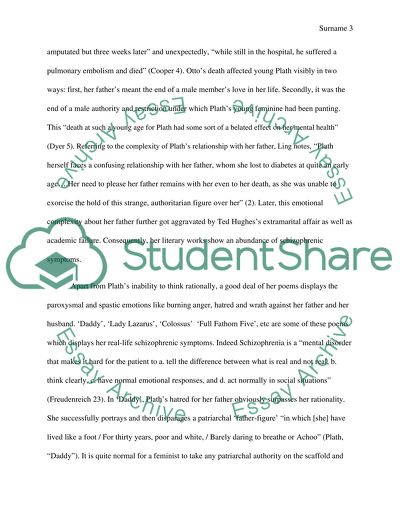Cite this document
(“The existence of Sylvia Plath's mental illness Research Paper”, n.d.)
Retrieved from https://studentshare.org/english/1461414-the-existence-of-sylvia-plath-s-mental-illness
Retrieved from https://studentshare.org/english/1461414-the-existence-of-sylvia-plath-s-mental-illness
(The Existence of Sylvia Plath'S Mental Illness Research Paper)
https://studentshare.org/english/1461414-the-existence-of-sylvia-plath-s-mental-illness.
https://studentshare.org/english/1461414-the-existence-of-sylvia-plath-s-mental-illness.
“The Existence of Sylvia Plath'S Mental Illness Research Paper”, n.d. https://studentshare.org/english/1461414-the-existence-of-sylvia-plath-s-mental-illness.


